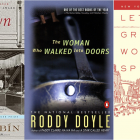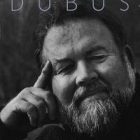Madness, Rack, and Honey
Madness, Rack, And Honey: Collected Lectures
Mary Ruefle
Wave Books, August 2012
327 pages
$25.00
Dear Dr. Poetry,
I’ve been hiding my poetry for 3 years now, and I’m dying to finally tell my family I’m a poet. But there’s always been a lot of stigma about poetry ever since Cousin Terrence died of melancholy. How do I break it them gently?
-Woefully Misinterpreted
This is quite a serious problem, WOE, one that no amount of poems could fix. No, for this problem we’ll need poetic lectures—specifically, Madness, Rack, and Honey: Collected Lectures by Mary Ruefle. For those unused to or uncomfortable with poetry, Ruefle offers innumerable avenues into the subject, and the reader is often surprised to discover that she has been imparting important poetic insights all along.
Over the course of fifteen years, Ruefle gave lectures to poetry students on topics that sound generic (“On Sentimentality”, “On Beginnings”, “On Theme”), but that were actually exceptionally witty and unpredictable. Indeed, her informal, often collagist style of exploring ideas makes this book feel less like lectures and more like extended anthropological musings about everything from the Apollo missions to Victoria’s Secret ads, and what it all means for poetry.
Guided by her constant curiosity, Ruefle shapes her understanding of poetry by considering even the most careless instances of the word. Noticing a trend in advertising to “poeticize” language, or use the word “poetry” to evoke a certain status, Ruefle concludes that the public thinks poetry is comfortable—whereas, in her view, “a good poem is seldom comfortable; either it vanquishes us with anguish or electrifies us with ecstasy or makes us pause and consider a new sense of the world or unravels us altogether, but never does it make us feel comfortable in the fashion of these ads.” Although few would stop to study “The Poetry of Knits,” Ruefle can’t help but be absorbed wherever poetry rears its uncomfortable head.
Ruefle, like any poet, is an insatiable explorer, one hopelessly, hilariously, and seriously dedicated to her craft. She recalls standing in a field in Switzerland, reading John Keats’ “Ode to a Nightingale” to a bunch of cows:
and I started to weep—weep is a better word for it than cry—and I remember the tears slowly streaming down my face, it was that beautiful to me, and I loved poetry that much. I was eighteen.
I remember (later) thinking that it was actually hilarious that I used to read poetry to cows, that they were an integral part of my most serious moment.
The world of letters can be frustrating and confusing for all of us. Ruefle remembers, “Once I saw a man beating his mailbox with his bare hands.” In many ways, WOE, your family is like that man—but who isn’t? As a confessed poet, you will be surrounded with confusion and disappointment—but know that those are unavoidable moments for everyone, not just for poets, and that as a poet you can harness those moments to shape your understanding of yourself and your craft.”
So, WOE, telling your family you’re a poet may feel like your most serious moment now—but when you’re older you’ll see that your most serious moment is really the commitment you’re making to your craft.



